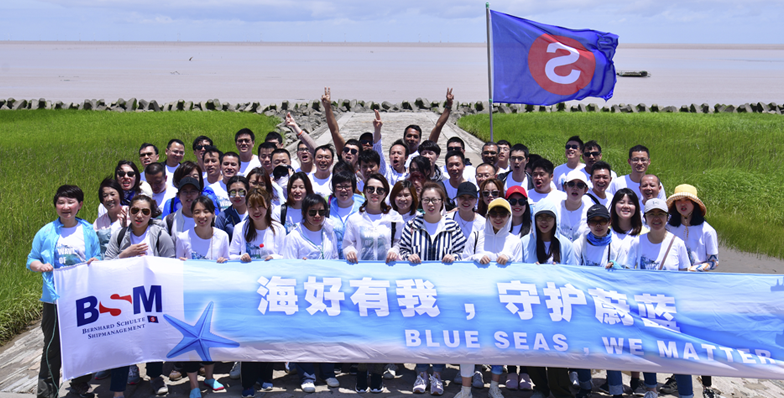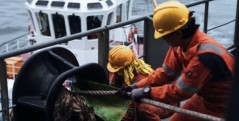In recent years, marine institutes globally have been shifting towards theory-based learning. As institutes recognise the importance of building a strong and safe theoretical foundation, it serves as a base for cadets’ practical development later. However, life at sea can be challenging for first-timers. Whenever new cadets make their first trip at sea, they are often looked upon as a safety risk given their limited knowledge and experience base.
Since its existence, the Schulte Group Cadet Programme aims to bridge this performance and knowledge gap, as officer cadets transit from their university degree to working on board their first vessel.
The Schulte Group Cadet Programme is targeted at developing Deck, Engine and Electrical Cadets who fulfil the programme’s entry requirements, providing full time development support. As an enhanced training programme, it is aimed at addressing the need for development of future senior officers.
The Programme comprises of three parts:
- Selection Board: This is a one-day assessment consisting of four tests which identify the individual’s effective intelligence, leadership, power of communication, values and motivation. Additionally, candidates undergo a general fitness test that highlights the emphasis on good health.
- Foundation Course: For those who pass the selection, this shore-based vocational skill development occurs over 12 weeks in one of BSM’s Maritime Training Centres (MTCs).
- Cadetship: This section provides constant monitoring of the cadet’s progress on board a vessel, along with ongoing assessment, guidance and support, all in an effort to qualify the cadet for the sea-time requirement licensure exams.
Providing a realistic training environment
Typically, the selection of cadets for other training programmes involves a review of their academic performance and a brief interview. Cadets are then immediately sent on board a vessel without any pre-sea preparation. This often results in considerable challenges for cadets as they struggle to bridge their theoretical knowledge gained from the course with the practical reality of onboard life. Due to their intensive working schedules as crew on board, these cadets often do not receive proper mentoring and guidance from their superiors.
The Schulte Group Cadet Training Programme offers a personalised approach supported by highly qualified learning and development specialists on shore, ensuring that cadets receive equal opportunities for training and assessment in a controlled and realistic working environment.
Through the 12-week foundation course in one of BSM’s MTCs, it ensures that the cadet arrives at the vessel with key competencies, enabling a quicker transition to life at sea.
The benefits
The Programme has been tested on board 70 BSM-managed vessels with over 90 percent success rate. This comes as no surprise as the cadets’ performance and progress are constantly monitored through a specially developed Electronic Task Book that supports them during their onboard training period. This allows their Designated Training Officers (DTO) on board and ashore to monitor the cadets’ performance and adjust trainings to better meet the requirements stated in the STCW Code and to comply with MLC 2006 work and rest hours regulations.
Customers too, benefit as a result from the success of the Programme. With a more competent workforce, operational expenditure can be reduced, while the number of on-hire days increases. Similarly, the safety record is improved as individual safety awareness among the cadets increases. As each aspect of the Programme seeks to minimise the risk of underperforming crew, the number and gravity of personal factor incidents are reduced.
Finally, fleet performance is improved as junior personnel has better pre-sea preparation, elevating the fleet’s average knowledge and experience base.





